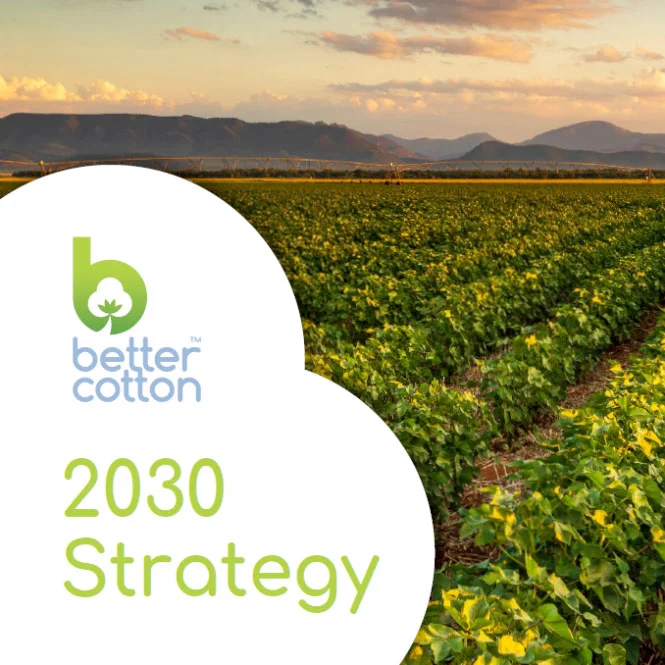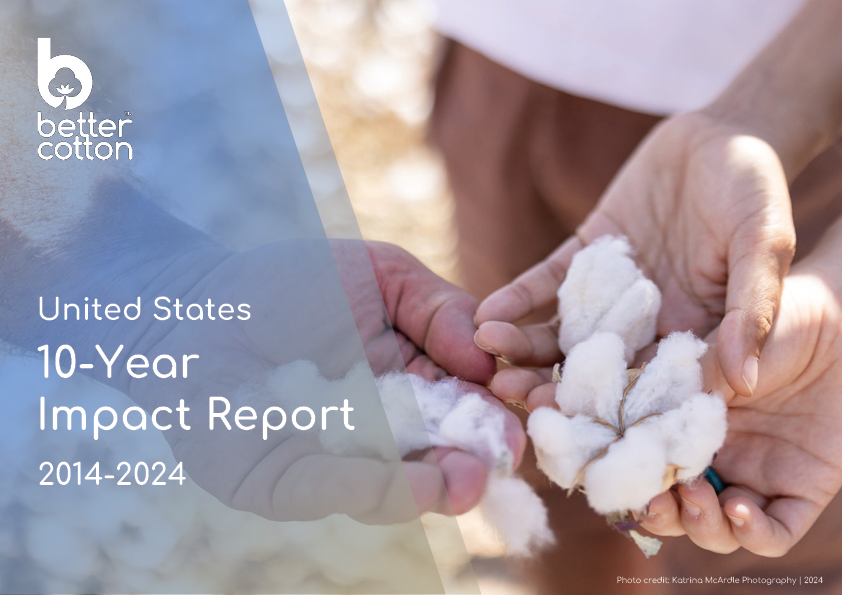- Who we are
- What we do
In just over 10 years we have become the world’s largest cotton sustainability programme. Our mission: to help cotton communities survive and thrive, while protecting and restoring the environment.
- Where we grow
Better Cotton is grown in 22 countries around the world and accounts for 22% of global cotton production. In the 2022-23 cotton season, 2.13 million licensed Better Cotton Farmers grew 5.47 million tonnes of Better Cotton.
- Our impact
- Membership
Today Better Cotton has more than 2,700 members, reflecting the breadth and diversity of the industry. Members of a global community that understands the mutual benefits of sustainable cotton farming. The moment you join, you become part of this too.
- Associate Membership
- Civil Society Membership
- Producer Organisation Membership
- Retailer and Brand Membership
- Supplier and Manufacturer Membership
- Find Members
- Member Monitoring
- Better Cotton Platform
- myBetterCotton
- Resources – Better Cotton Conference 2022
- Complaints
- Whistleblowing
- Safeguarding
- Get Involved in the Better Cotton Programme
- Thank you for contacting us
- Better Cotton’s Data Privacy Policy
- Log in
- Members’ Area
- Request for Proposals
- Better Cotton Cookie Policy
- Web Reference
- Measuring Cotton Consumption
- How to Implement the Chain of Custody Standard
- Resources – Better Cotton Conference 2023
- Certification Bodies Old
- Latest
- Sourcing
- Latest
The founding premise of Better Cotton is that a healthy sustainable future for cotton and the people that farm it is in the interests of everyone connected with it.
Let us help you find what you’re looking for
Results for {phrase} ({results_count} of {results_count_total})Displaying {results_count} results of {results_count_total}
By Alan McClay, BCI CEO
Any world crisis with social, economic and political global repercussions hits the most vulnerable groups hardest, including women and girls. The Covid-19 pandemic has thrown this reality into stark relief, heightening existing inequalities, financial insecurity and even violence against women. Reports of domestic violence had increased by up to a third in some countries by April 2020, according to UN Women. Meanwhile, in Sub-Saharan Africa and South Asia, over 90% of people in informal employment are women, for example. In cotton-farming countries, market and economic uncertainty have particularly affected communities living under precarious conditions with little job security or limited access to markets, with women farm workers among those suffering the most.
The pandemic has also increased the burden of unpaid care undertaken by women – from childcare to caring for the elderly – and deepened the world’s reliance on their skills and compassion as the majority of healthcare workers. Yet everywhere women are still underrepresented in leadership and decision-making roles, in healthcare, farming and beyond.
Existing inequalities exacerbate the economic effects of Covid-19
Research by the McKinsey Global Institute has underlined the strong link between gender equality in society and gender equality at work. To achieve the latter, the former is a prerequisite. In the current pandemic, the economic fallout is having a regressive effect on gender equality. Women constitute 39% of global employment but represent 54% of job losses.
Yet the research also indicates that diversity and equality are significant factors in economic growth and in organisational performance. This is true generally but also more specifically in the area of cotton farming.
Women in cotton production
In cotton production, women take on varied, essential roles, but their labour is often unrecognised and underpaid. Women in developing countries contribute significantly to manual tasks such as weeding, sowing, picking and sorting, representing 70-100% of the workforce in Pakistan, for example. Yet more mechanised, technology-led approaches to cotton farming still tend to be the realm of men. And women’s lack of involvement in decision-making and relatively lower exposure to vital training can inhibit their ability to encourage the adoption of more sustainable, healthier and safer practices on their families’ farms. It can also provide a fundamental barrier to productivity. Recent analysis by our funding partner IDH, The Sustainable Trade Initiative revealed that in Maharashtra, India, women carry out 84% and 74% of weeding and fertiliser application. However, incorrect weeding and delayed application of fertilisers can reduce yields by 10-40%.
Over the 2018-19 cotton season, BCI programmes and partnerships reached over 2 million cotton farmers – and only 6.7% of those directly registered were women. I believe this must change if we are to truly transform cotton production and establish Better Cotton as a sustainable mainstream commodity. Both women and men need to be equally empowered to bring about sustainable practices and sustainable change.
BCI’s Gender Strategy: Addressing systemic inequality in cotton farming
To help ensure that women benefit to the same extent as men, we must take a gender-sensitive approach to all our activities. Through our Gender Strategy, we are working to help catalyse a transformed, sustainable cotton industry in which everyone has equal opportunities to thrive. This means making women’s and men’s concerns and experiences an integral part of how we design, implement, monitor and evaluate policies and programmes. By achieving this in every sphere where we have an opportunity to influence positive change – from farms to the sustainable cotton community to our own organisation – we aim to amplify our impact and inspire a step change in gender equality across our industry.
How BCI is supporting women farmers and farm workers during the Covid-19 pandemic
Let’s take an example in the Punjab region of Pakistan. This season, farmers are receiving lower than average prices for their cotton due to the knock-on effects of uncertain markets, and are therefore struggling to afford as many labourers as usual. This means farm workers, and women workers in particular, are struggling to gain employment.
Our six Implementing Partners in Pakistan are supporting the country’s more than 360,000 BCI Farmers, and along with them farm workers, so that they are able to find work while staying safe during the Covid-19 pandemic. Importantly, they are raising awareness of good health and safety practice among farming communities, distributing personal protective equipment (PPE) including face masks and hand sanitisers, and delivering (largely online) training on Covid-19 prevention and protection, alongside more sustainable farming practices.
To help support women workers in particular, our Implementing Partner the Sangtani Women Rural Development Organization (SWRDO), a non-profit organisation helping marginalised and economically underprivileged families gain access to healthcare and education, is helping to keep women farm workers protected at this challenging time. Its Field Facilitators (who typically provide on-the-ground training to BCI Farmers and workers) are providing PPE kits to 7,700 female farm workers to help protect them while they carry out their work this cotton season.
If we are to work together to build a strong recovery, we need to act now with policy and business leaders, working together to build stronger gender equality by accelerating and reinforcing tangible moves to redress the gender balance.
For more information on how BCI is addressing the impact of the Covid-19 pandemic on cotton farming, please visit our Covid-19 Hub.


